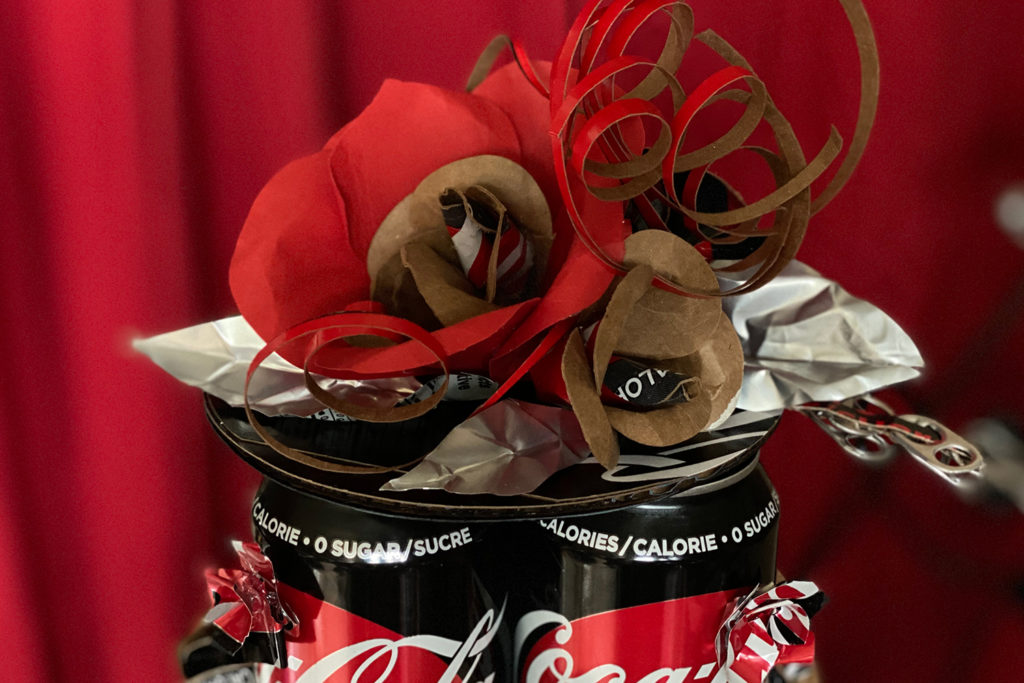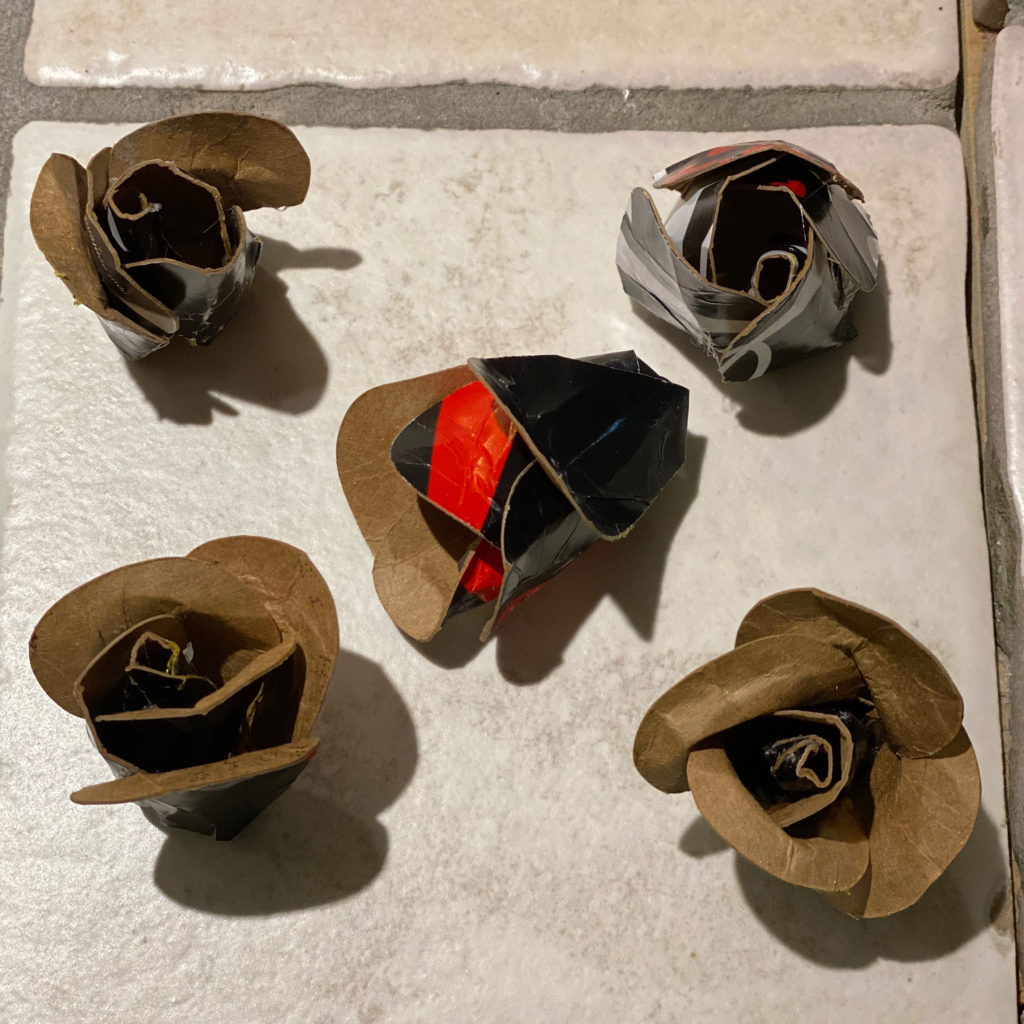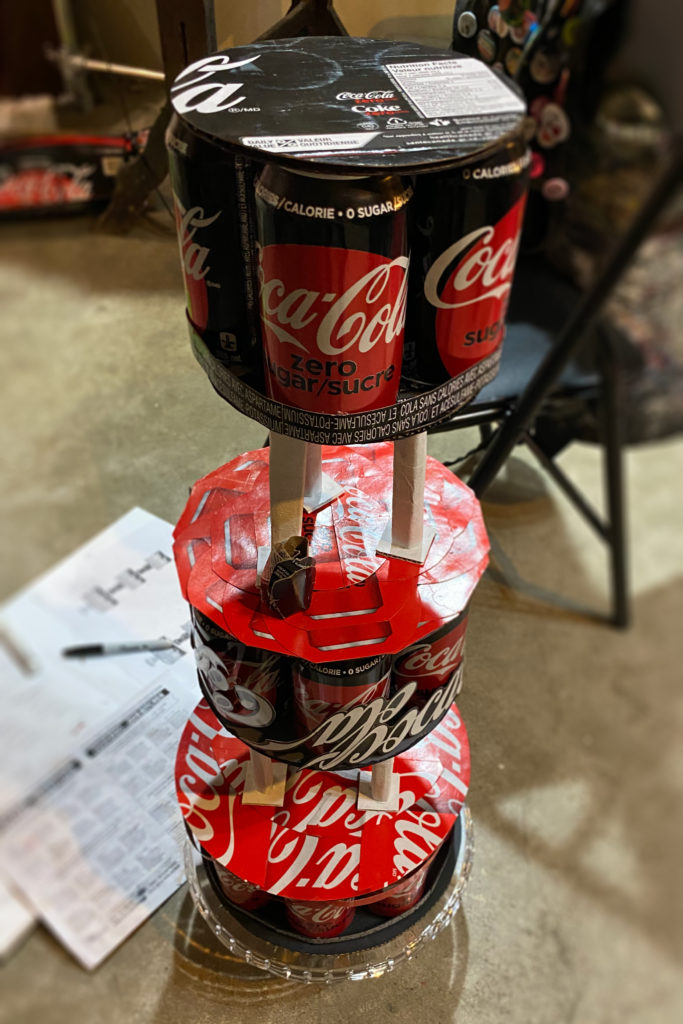Creator: Kay Slater
Exhibition: Inedible Cakes
Published: February 2020
Format: Sculpture, Coke Zero Packaging and Cans
“It was really important for me to have unaltered cans in the sculpture. I wanted the total height to invite thoughts about the mountains of waste created by compulsive consumption. The image of stacked, empty cans of soda is pretty common, and it isn’t typically shameful (in fact, it’s sometimes a thing of pride). People may wave away conversations around waste by arguing that cans can be recycled, but that ignores the current local issues around recycling in so-called Vancouver, the complications and benefits of a binner class, the waste produced by the mass-manufacturing process, or any other unrecyclables (plastic rings, etc) created by the unnecessary amount of soda we drink.”
Kay Slater
Description of the Work
Zero Sugar was conceived from conversations around perfect food presentation and marketing, waste, our obsession with (and against) sugar, and compulsive eating/drinking. The alluring nature of the three-layer cake asks that we question what is truly on display. The ever-present Coke logo is distorted and translated into decoration, and yet is so burned into our brains that we cannot disassociate it with the ubiquitous brand.
Crates of cola tower over us in the entrances of grocery stores, often stacked in creative and figurative ways, evoking the sublime and awe in those who past by and through. It is ever-present, manipulating us to buy with each impression, and has so successfully overcome its opposition such that it is almost ridiculous to question it seriously today. It’s a symbol for the cool, the youth, the overworked, the thirsty, the thrifty, the beautiful. “Drink Coke!, and would you like a diet Coke with that (but you’re beautiful baby), but really you should be drinking Coke Zero (for your health) and if you absolutely must, drink caffeine-free Coke (we’re sorry and hope that, as you soon you can, you can return to drinking the good Coke). Those who have an addiction, openly admit it without fear of censure or repercussion. It is far more rare to not have a caffeine or sugar addiction, and is likely to invite more questions and examination of character than to accept the offered drink or sweet in social environments.
…
Like a bride or groom who must have the iconic cake or else their wedding be ruined, heaven help those who bring a crate of Pepsi or diet generic cola to the workplace of a “Coke Zero office”. Designated driver? The bar will give you a free Coke! It’s so adaptable that it exists with such (planned and purchased) synchrony to our lives, that it’s banal to comment on it. It has the dollars to be omnipresent and keep it from becoming a generic trade mark, and whose hopelessly-addicted champions charge to defend its importance to their own personal identity.
…
By setting a glass of water beside the sculpture (ultimately removed early in the programme by a salon attendee wanting to help out, February 2020 salon – MST Territory/Vancouver) it invites the local viewer to consider how we choose to pay to hydrate ourselves with something that creates so much waste (pre and post-consumption), when we are fortunate enough to live in an area with free, drinkable water on every street corner in the city. To acknowledge that deep roots that the drink manufacturing companies have in our everyday lives – to be so fortunate to have access to unbottled, drinkable water and to still choose to consume obsessively and defend aggressively the decision to buy, serve, and drink cola to excess in our offices, community centres, children’s parties, restaurants, hospitals, and at home is astonishing.





